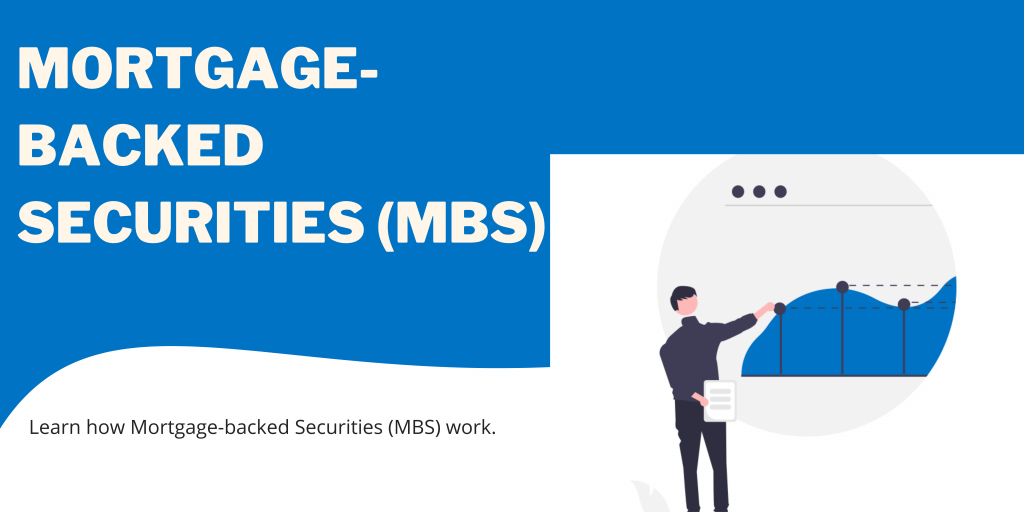Mortgage lenders originate loans intending to hold them until they are paid off. However, there are several reasons why lenders may sell mortgages to investors.
This article will explore some of those reasons and discuss the benefits for both the lender and the investor.
Secondary Mortgage Market: Marketplace For Mortgages
Mortgages are not limited to the primary mortgage market, where lenders originate them to consumers. Instead, they can be bought and sold in a secondary mortgage market.
This marketplace provides liquidity for lenders to sell their mortgages and investors to buy them. Different government entities, such as Fannie Mae and Freddie Mac, regulate the secondary mortgage market.
Mortgage-backed securities (MBS) are created when investors purchase mortgages from lenders and bundle the loans together. The MBS are then sold to other investors who earn income by collecting payments on the bundled loans.

Mortgage Lenders Vs. Mortgage Investors
Mortgage Lenders
Mortgage lenders are financial institutions that offer loans to borrowers to purchase real estate. The property secures the loan, so If the borrower doesn’t keep up with loan payments, If you don’t repay the loan, your lender can foreclose on your home.
Mortgage lenders can be banks, credit unions, or private companies’ mortgage originators. Lenders consider many factors when approving a mortgage loan, such as the borrower’s credit history, employment history, and income.
The lender will also appraise the property’s value to ensure it is worth at least as much as the loan amount. Therefore, when buying a home, it is essential to shop for a mortgage lender offering competitive rates and terms.
Mortgage lenders originate loans and manage them until they are paid off. This process can be time-consuming, costly, and risky for the lender.
Lenders selling mortgages to investors allows them to recoup their investment to continue lending money. Plus, it will enable them to reduce the risk of holding onto a loan for an extended period.
Mortgage Investors
Mortgage investors are a type of financial institution that provides funding for mortgage loans. Mortgage investors typically purchase loans from banks, other lenders, or mortgage originator and then hold them in their portfolios.
By doing so, mortgage investors provide essential funding for the housing market. In addition, mortgage investors often play an important role in managing risk within the housing market.
For example, by buying loans at risk of default, mortgage investors can help stabilize the housing market and protect against further losses. Given the vital role that mortgage investors play in the housing market, it is essential that they are well-regulated and supervised.
From the investor’s perspective, mortgage investments can provide a steady income stream. As the borrower makes payments to the secondary market, investors earn income from the interest earned on loan.
Plus, investors can benefit from lower rates and fees associated with purchasing mortgages from lenders in bulk.
Reasons Why Lenders May Sell Mortgages To Investors
There are several reasons why lenders may choose to sell their mortgages in the secondary mortgage market.
To Free Up Capital For Additional Loans.
By selling mortgages, lenders can free up capital that would otherwise be tied up in loan payments and use it to originate new loans. As a result, it helps lenders increase their loan volume and generate more income.
Many banks and financial institutions have begun selling mortgages to free up capital for additional loans. This process, known as securitization, involves pooling together a group of mortgages and then selling them to investors as a security.
By securitizing their mortgages, banks can raise capital that can be used to make new loans by the new loan servicer. While this practice has helped to provide funding for many borrowers, it has also been criticized for contributing to the housing crisis.
To Transfer The Risk Associated With Holding A Loan.
By selling their loans in the secondary mortgage market, lenders can offload some of this risk and protect themselves from potential losses. In addition, when lenders sell their mortgages to investors, they can transfer the risk of default and foreclosure.
Furthermore, lenders can often negotiate lower rates and fees when lenders sell loans in bulk. As a result, it can help make it more affordable for borrowers to get a mortgage.
Investors Can Help Lenders Reduce Operational Costs.
Lenders can save money on staffing and other expenses by outsourcing these services. Plus, by selling loans to investors, lenders can avoid the costs associated with collecting and remitting payments.
When mortgage rates are constantly changing, this task can be pretty daunting. But, it is where investors come in. By working with an experienced investor, lenders can receive help in pricing their mortgages correctly.
In turn, this can help to reduce operational costs and improve the bottom line. In addition, investors can also assist with the marketing and selling of mortgages.
By providing a ready market for the product, investors can help to reduce the time and effort required by the lender. As a result, working with an investor can significantly reduce operational costs when selling mortgages.
To Gain Access To A Wider Market Of Potential Borrowers.
By selling their mortgages to investors, lenders can tap into a larger pool of borrowers and increase their loan volume. In addition, targeting a larger geographical area and making it possible for more people to have the opportunity to purchase a home increases the chances that someone will find a buyer for their mortgage.
Additionally, this creates more competition for lenders who may offer more favorable terms to buyers to gain their business. Furthermore, this can lead to lower interest rates and better loan terms for buyers in the market for a mortgage.

It Will Be More Profitable In The Long Run.
By selling the mortgage and collecting a one-time fee, the lender can make more money than if they held onto the mortgage and collected monthly mortgage payments over time. In addition, selling mortgages is more profitable in the long run because, eventually, the person who buys the mortgage will have to foreclose on the property.
You are getting paid upfront for the property by selling the mortgage. This way, even if the person who buys the mortgage forecloses on it, you will still have made a profit.
The Benefits Of Selling Mortgages: Towards The Mortgage Lender
There are many advantages for a mortgage lender when selling mortgages. The primary benefit is that, instead of making mortgage payment periodically over the loan’s duration, the lender will get a lump sum of cash all at once.
It can be a significant advantage when the lender needs access to cash or wants to invest in other opportunities. In addition, selling mortgages can help to diversify the lender’s portfolio and reduce risk.
By selling loans, the lender is no longer exposed to changes in the interest rate or the housing market’s performance. Finally, selling mortgages can also help free up capacity so the lender can originate new loans.
As a result, selling mortgages can provide significant benefits for lenders.
The Benefits Of Selling Mortgages: Towards The Mortgage Investor
Mortgage investors can benefit from purchasing mortgages in the secondary market. Investors will enjoy a steady income stream as they collect payments on the mortgage loans they buy.
Plus, investors can benefit from lower rates and fees associated with buying these loans in bulk. In addition, by purchasing mortgages, investors can diversify their portfolios and reduce the risk of investing in one type of asset.
Ultimately, there are many advantages for both lenders and investors when selling mortgages in the secondary mortgage market. By taking advantage of these opportunities, both parties can benefit from increased liquidity and a more stable housing market overall.
Generally
Selling Mortgages to Investors is a beneficial transaction for both lenders and investors. Lenders can free up capital and transfer risk associated with loan payments by selling mortgages.
Meanwhile, investors can benefit from steady income streams and lower rates. Ultimately, selling mortgages in the secondary mortgage market provides advantages for both.
It is a symbiotic relationship that can help to strengthen the housing market and provide more liquidity for potential homeowners.

FAQs
Without notifying the homeowner, can a bank sell their mortgage?
Yes, banks sell mortgages are allowed without notifying the homeowner.
What is the use of personal finance in selling mortgages?
Personal finance is necessary when selling mortgages as it helps potential buyers understand the financial resources needed to make a successful purchase. Additionally, personal finance can help lenders determine whether or not someone will be able to afford the loan they are offering.
What are the benefits of having a house worth more than your mortgage?
Homeowners can benefit from increased equity when a house is worth more than the mortgage balance. A home equity line of credit is remarkably similar to a safety net for homeowners.
If you need extra money, it’s there to help — providing financial security when you need it most. It adds value to the property for potential buyers if the owners decide to sell.



